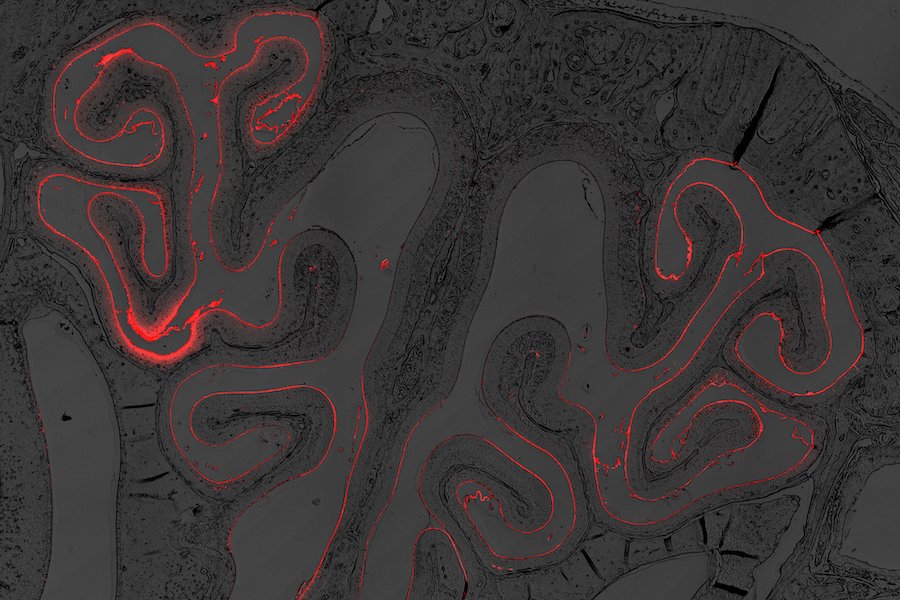2022-08-09 ワシントン大学セントルイス
腹部大動脈瘤の治療における新しい戦略につながる可能性があります。
大きな動脈瘤は外科的に修復することができますが、小さな動脈瘤は外科的に修復できる大きさになるのを待つ以外に治療法がない。今回のマウスでの発見は、動脈瘤の破裂を予防できる可能性のある治療法を示しています。
この研究では、ナノ粒子を用いて、炎症を起こしている血管に直接、抗炎症剤のペイロードを送り込みました。このナノ粒子は、メリチンと呼ばれるタンパク質の断片をベースに、小さなRNAを運ぶように最適化されたものである。このタンパク質断片はRNAと複合体を形成し、マウスに投与すると、主に炎症を起こしている組織に蓄積される。そこで、タンパク質断片がRNAの断片を取り出し、細胞の主要な区画に入るのを助ける。RNAは、重要な炎症性タンパク質であるNF-kappaBの発現を阻害することにより、炎症を抑制するのである。
<関連情報>
- https://source.wustl.edu/2022/08/experimental-drug-reduces-risk-of-death-from-blood-vessel-rupture-in-mice/
- https://www.sciencedirect.com/science/article/pii/S2772950822002862
NF-κB p50を標的としたペプチド-siRNAナノ粒子が実験的腹部大動脈瘤の進行と破裂を抑制する Peptide-siRNA nanoparticles targeting NF-κB p50 mitigate experimental abdominal aortic aneurysm progression and rupture
Huimin Yan,Ying Hu,Antonina Akk,Samuel A.Wickline,Hua Pan,Christine T.N.Pham
Biomaterials Advances Available online: 2 July 2022
DOI:https://doi.org/10.1016/j.bioadv.2022.213009

Highlights
- •NF-kB p50 and p65 are key modulators of the inflammatory process in AAA.
- •p50 and p65 contribute differentially to AAA at different stages of disease.
- •Nanotherapy delivering p50 siRNA mitigates AAA expansion and rupture.
- •p50 represents a target for rational drug design in AAA treatment.
Abstract
Abdominal aortic aneurysm (AAA) is a progressive vascular condition associated with high risk of mortality if left untreated. AAA is an inflammatory process with excessive local production of extracellular matrix degrading enzymes, leading to dilatation and rupture of the abdominal aorta. We posit that targeting NF-κB, a signaling pathway that controls inflammation, will halt AAA progression and prevent rupture. In an elastase-induced AAA model we observed that NF-κB activation increased progressively post-elastase perfusion. Unexpectedly, we found that AAA progression was marked by predominant nuclear accumulation of the NF-κB p50 subunit at the exclusion of p65. Using the amphipathic peptide p5RHH to form nanocomplexes with siRNA, we sought to mitigate AAA progression by knocking down the expression of different NF-κB subunits. We found that the administration of NF-κB p65 siRNA was only beneficial when given early (day 3 post-elastase perfusion) while p50 siRNA was still effective in mitigating elastase-induced AAA even when delivery was delayed until day 5. Additionally, systemic delivery of p50 siRNA, but not p65 siRNA decreased the risk of aortic rupture and sudden death in the transforming growth factor-beta blockade model of AAA. In both murine models, knockdown of NF-κB was accompanied by a significant decrease in leukocyte infiltrates, inflammatory cytokine release, inducible nitric oxide synthase expression, and cell apoptosis. These results suggest that the NF-κB p50 and p65 subunits contribute differentially at different stages of disease and the timing of in vivo siRNA delivery was of critical importance. The results also provide a rationale for selective targeting of p50 for more specific therapeutic intervention in the medical treatment of small AAA.

